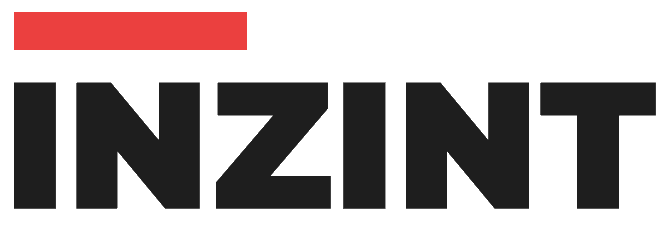Introduction
Artificial Intelligence (AI) is no longer just an emerging technology—it is fundamentally transforming the way businesses operate. AI-powered tools are automating processes, improving customer engagement, and helping organizations make faster, data-driven decisions.
By 2025, AI is projected to increase global business productivity by up to 40%, with industries like healthcare, finance, and manufacturing seeing the highest adoption rates. Companies that integrate AI successfully are future-proofing their operations and gaining a competitive advantage.
In this blog, we explore how AI is shaping the future of business innovation, the biggest trends, and practical steps for AI adoption.
The Rise of AI in Business: A Game Changer
AI is no longer optional—it is a necessity for companies that want to scale and remain competitive. According to a 2023 survey by McKinsey, 80% of enterprises are actively investing in AI, with applications ranging from automated workflows to AI-powered cybersecurity.
Why is AI a game changer?
✅ Higher Efficiency – AI eliminates repetitive tasks, allowing employees to focus on strategic work.
✅ Cost Savings – Companies using AI-powered automation reduce operational expenses by up to 30%.
✅ Data-Driven Decision Making – AI processes large amounts of data in seconds, providing accurate insights.
✅ Scalability – AI-powered solutions allow businesses to expand operations without hiring more staff.
🔹 Example: Amazon uses AI-powered robots in warehouses to optimize order fulfilment, increasing efficiency by 50% while reducing errors.
Keyways AI is Driving Digital Transformation
AI for Business Process Automation
AI-powered automation is redefining how businesses operate by taking over repetitive tasks such as invoice processing, HR documentation, and IT troubleshooting.
🔹 Robotic Process Automation (RPA): AI-driven bots handle tasks that previously required human effort, like data entry and compliance checks.
🔹 Smart Workflow Automation: AI streamlines operations in supply chain management, logistics, and inventory tracking.
🔹 AI in IT Support: AI chatbots troubleshoot basic IT issues, reducing dependency on human IT teams.
✅ Example: A study found that banks using AI for automation reduced customer query resolution time by 60%, significantly improving service efficiency.
AI-Powered Data Analytics & Decision-Making
AI enhances business intelligence by analysing complex datasets in real time, allowing leaders to make accurate, data-driven decisions.
🔹 Predictive Analytics: AI forecasts customer behaviour, market trends, and sales patterns, enabling businesses to stay ahead of demand.
🔹 Real-Time Insights: AI-powered tools monitor business performance, competitor strategies, and consumer sentiment, offering valuable insights.
🔹 AI for Risk Assessment: AI helps financial institutions predict and mitigate potential risks before they become problems.
✅ Example: Retail giants like Walmart use AI to analyse purchasing patterns, ensuring that popular products remain in stock during peak seasons.
AI in Cybersecurity & Risk Management
With cyber threats evolving rapidly, AI has become an essential tool for preventing attacks, detecting fraud, and securing digital assets.
🔹 AI-Powered Threat Detection: AI analyses millions of data points in real time to identify security threats before they happen.
🔹 Fraud Prevention: AI detects unusual transaction patterns and prevents financial fraud.
🔹 Automated Compliance Monitoring: AI ensures that businesses follow industry regulations and security standards.
✅ Example: PayPal uses AI-powered fraud detection systems to analyse over 100 million transactions daily, preventing fraudulent activities before they occur.
AI in Workforce Optimization & HR
AI is transforming HR departments by automating recruitment, enhancing employee engagement, and predicting workforce trends.
🔹 AI in Hiring: AI scans thousands of resumes in seconds, shortlisting the best candidates based on job fit.
🔹 AI-Powered Employee Insights: AI tracks employee performance and predicts attrition rates, helping HR leaders take proactive measures.
🔹 Automated Training Programs: AI personalizes employee learning, recommending training based on skill gaps.
✅ Example: Companies using AI-powered recruitment platforms reduce hiring time by 50%, leading to faster onboarding and better talent acquisition.
AI in Personalized Customer Experience
AI is revolutionizing customer interactions by delivering tailored experiences, real-time support, and predictive recommendations.
🔹 Chatbots & AI Assistants: AI-driven virtual assistants provide instant support across various platforms.
🔹 Recommendation Engines: AI suggests products, movies, and services based on user behaviour.
🔹 Sentiment Analysis: AI analyses customer feedback, helping brands improve their messaging and services.
✅ Example: Spotify and Netflix use AI to create highly personalized recommendations, increasing customer retention rates.
Emerging AI Trends That Will Shape the Future
🚀 Generative AI: AI that creates text, images, music, and even code.
🚀 Autonomous AI: AI making independent decisions in business operations.
🚀 AI-Driven Cybersecurity: AI identifying cyber threats in real-time.
🚀 AI in Healthcare: AI-powered diagnostics improving disease detection accuracy.
Businesses that embrace these AI trends will gain a significant competitive edge.
Challenges of AI Adoption & How to Overcome Them
🔴 Data Privacy & Security: AI must comply with GDPR and CCPA regulations to protect user data.
🔴 High Initial Costs: AI implementation requires investment in infrastructure and skilled personnel.
🔴 Resistance to Change: Employees may fear AI replacing jobs, requiring businesses to focus on AI upskilling programs.
✅ Solution: Businesses should adopt AI gradually, starting with small-scale implementations before full-scale deployment.
The Road Ahead: AI’s Role in the Next Decade
AI will continue to evolve, transforming industries with greater automation, smarter analytics, and AI-powered innovation. Companies that invest in AI now will benefit from:
✅ Higher operational efficiency
✅ Stronger cybersecurity and risk management
✅ Better decision-making capabilities
✅ Enhanced customer engagement
The future of AI is limitless businesses must act now to stay ahead.
Conclusion
AI is reshaping industries, automating workflows, and providing unparalleled insights that drive success. Companies that embrace AI will:
✅ Increase productivity and efficiency
✅ Enhance security and compliance
✅ Deliver better customer experiences
✅ Scale faster and smarter
The AI revolution is here to stay—is your business ready to leverage its full potential? 🚀
